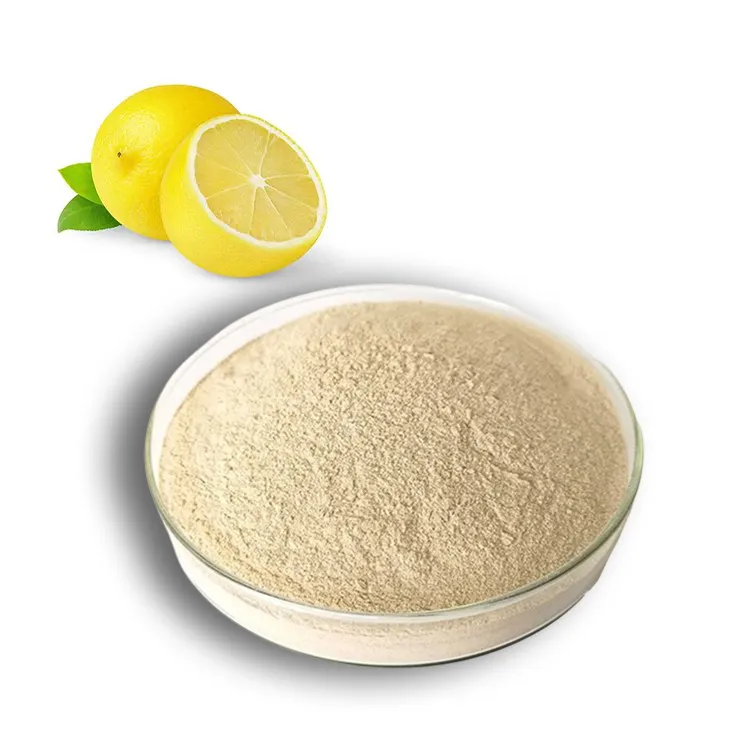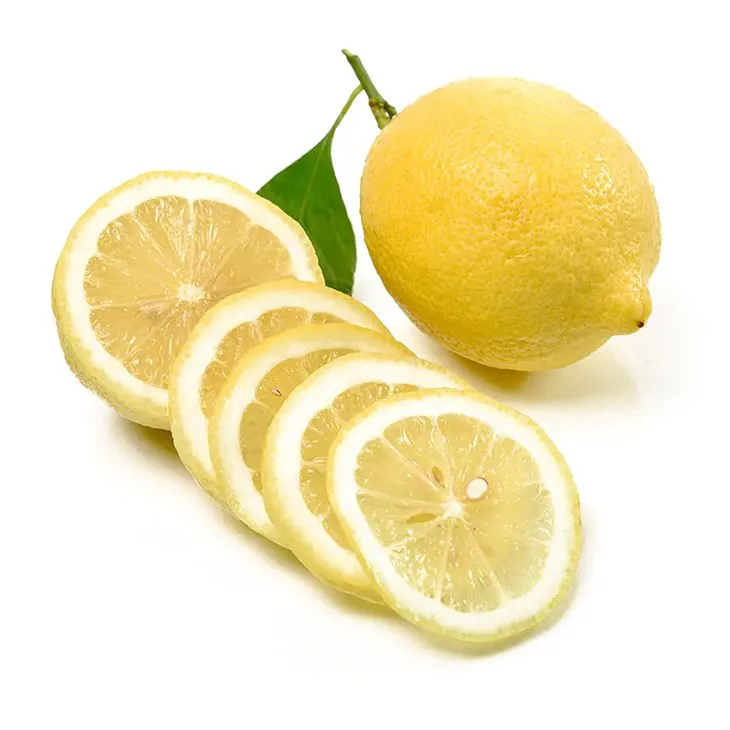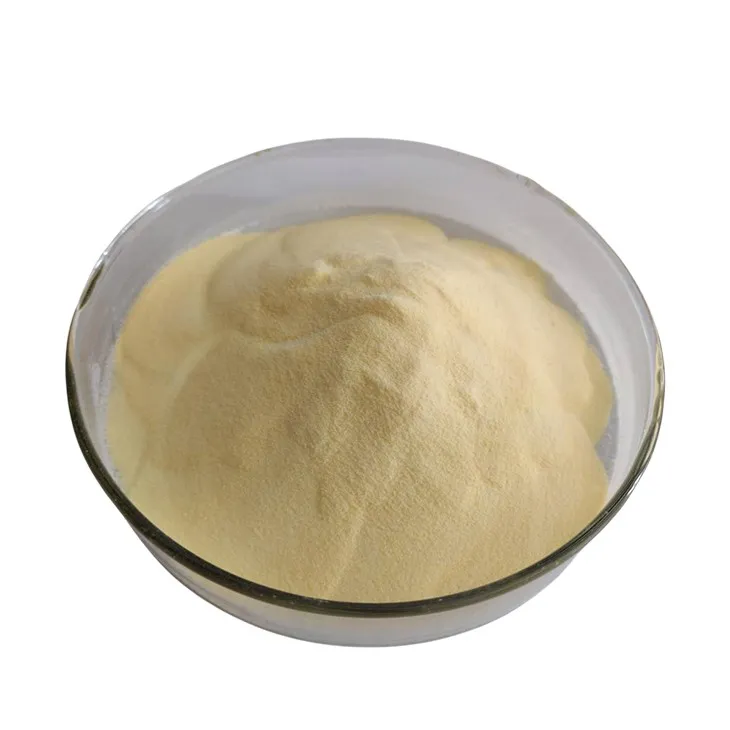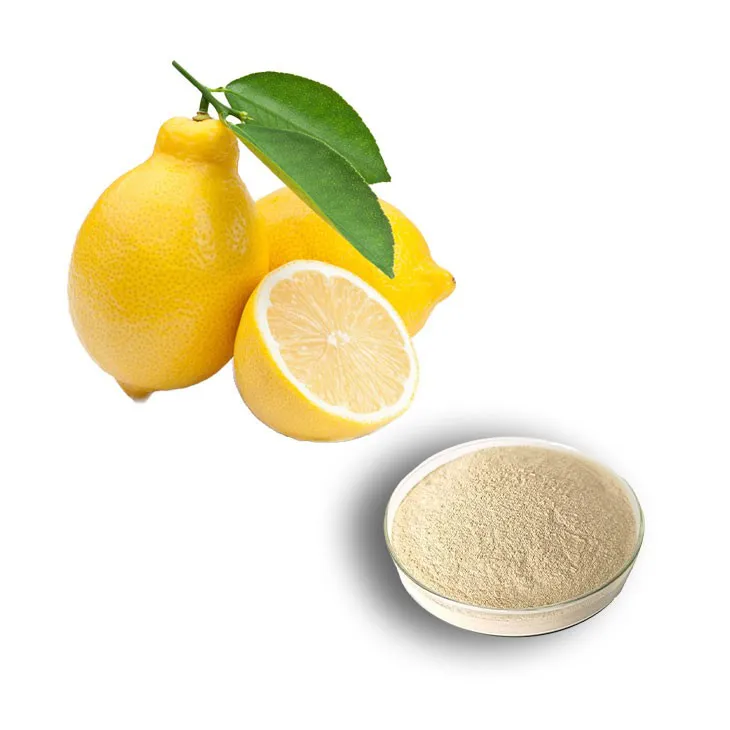- 0086-571-85302990
- sales@greenskybio.com
Title: The Best Types of Lemon Extract. Type: A Guide to Selecting the Best Lemon Extract.
2024-11-11

Introduction
Lemon Extract is a versatile and essential ingredient in many kitchens. It imparts a bright, citrusy flavor to a wide variety of dishes, from baked goods to savory sauces. However, with so many options available on the market, choosing the best Lemon Extract can be a daunting task. This guide will help you navigate through the different types of Lemon Extract, considering factors such as organic vs. non - organic, flavor intensity, and quality, so that you can make an informed decision for your cooking and baking needs.

Organic vs. Non - Organic Lemon Extract
Organic Lemon Extract
What it is: Organic lemon extract is made from lemons that are grown without the use of synthetic pesticides, fertilizers, or genetically modified organisms (GMOs). The production process adheres to strict organic farming standards.
Benefits:
- Healthier Option: For those who are conscious about consuming chemicals, organic lemon extract provides a more natural alternative. It is free from potentially harmful residues that may be present in non - organic products.
- Environmental Impact: Organic farming practices are generally more sustainable. They promote soil health, biodiversity, and reduce water pollution compared to conventional farming methods used for non - organic lemons.
- Flavor Profile: Some consumers claim that organic lemon extract has a purer, more intense lemon flavor. This could be due to the fact that the lemons are grown in a more natural environment, which may enhance their flavor development.
Drawbacks:
- Cost: Organic farming practices are often more labor - intensive and have higher production costs. As a result, organic lemon extract is typically more expensive than its non - organic counterpart.
- Availability: In some areas, it may be more difficult to find organic lemon extract compared to non - organic options. This limited availability can be a drawback for consumers who prefer organic products but have limited access to them.
Non - Organic Lemon Extract
What it is: Non - organic lemon extract is made from lemons that are grown using conventional farming methods, which may include the use of synthetic pesticides, fertilizers, and other chemical inputs.
Benefits:
- Cost - Effective: Non - organic lemon extract is generally more affordable, making it a more budget - friendly option for those who use lemon extract frequently in their cooking or baking.
- Widely Available: It is more commonly found in grocery stores, both in physical locations and online. This widespread availability makes it convenient for consumers to purchase whenever they need it.
Drawbacks:
- Chemical Residues: There is a potential for chemical residues from pesticides and fertilizers to be present in the extract. While these residues are typically within safe limits as regulated by food safety authorities, some consumers may prefer to avoid them altogether.
- Flavor Quality: Some people believe that non - organic lemon extract may have a slightly less pure or intense flavor compared to organic extract, although this can vary depending on the brand and production process.

Flavor Intensity
The flavor intensity of lemon extract can vary significantly between different products. This variation can be due to several factors, including the type of lemons used, the extraction process, and any additional ingredients or preservatives.
High - Intensity Lemon Extract
Characteristics:
- Rich and Bold Flavor: High - intensity lemon extract has a strong, concentrated lemon flavor. A small amount can go a long way in adding a powerful citrus punch to your recipes.
- Ideal for Strong - Flavored Dishes: It is perfect for recipes where the lemon flavor needs to stand out, such as in lemon - flavored cakes, lemon bars, or in marinades for fish or chicken where a distinct lemon flavor is desired.
How to Identify:
- Read the Label: Look for terms like "concentrated," "double - strength," or "extra - strength" on the label. These indicate that the extract has a higher flavor intensity.
- Check the Ingredient List: Fewer additional ingredients and a higher proportion of lemon oil or essence usually suggest a more intense flavor.
Medium - Intensity Lemon Extract
Characteristics:
- Balanced Flavor: Medium - intensity lemon extract offers a more balanced lemon flavor. It is not as overpowering as high - intensity extract but still provides a noticeable citrus note.
- Versatile Use: This type of extract is suitable for a wide range of recipes. It can be used in both sweet and savory dishes without dominating the other flavors. For example, it can be added to salad dressings, pasta sauces, or light - flavored cakes.
How to Identify:
- General Labeling: If the label does not specifically mention high - intensity or low - intensity, it is likely a medium - intensity extract. Most standard lemon extracts fall into this category.
- Taste Testing: If possible, do a taste test. A medium - intensity extract should have a flavor that is neither too strong nor too weak.
Low - Intensity Lemon Extract
Characteristics:
- Subtle Flavor: Low - intensity lemon extract has a very mild lemon flavor. It is more suitable for recipes where you want just a hint of lemon, such as in delicate custards, whipped creams, or in some light - flavored beverages.
- Blending Well: It blends well with other flavors without overpowering them, making it a good choice for complex recipes where multiple flavors need to work in harmony.
How to Identify:
- Label Indications: Some labels may mention "mild" or "subtle" flavor, which can be an indication of low - intensity.
- Dilution or Added Ingredients: If the extract contains a large amount of other ingredients or is described as a "diluted" version, it is likely to have a low - intensity flavor.

Quality Indicators
When choosing the best lemon extract, it is important to consider various quality indicators to ensure that you are getting a high - quality product.
Ingredient Quality
Lemon Source:
- Origin of Lemons: High - quality lemon extract is often made from lemons sourced from regions known for their excellent lemon production. For example, lemons from Sicily in Italy or from California in the United States are highly regarded for their flavor. Knowing the origin of the lemons can give you an idea of the potential quality of the extract.
- Freshness of Lemons: The freshness of the lemons used in the extraction process is crucial. Fresher lemons are likely to produce a more flavorful and aromatic extract. Look for products that emphasize the use of fresh, high - quality lemons.
Additional Ingredients:
- Minimal Additives: A good lemon extract should have minimal additional ingredients. Avoid products with a long list of artificial colors, flavors, and preservatives. Ideally, the extract should consist mainly of lemon oil, alcohol (used as a solvent in the extraction process), and water.
Manufacturing Process
Extraction Method:
- Cold - Pressed vs. Steam - Distilled: Cold - pressed lemon extract is often considered of higher quality as it preserves more of the natural flavors and aromas of the lemons. Steam - distilled extract can also be good, but it may lose some of the more delicate flavor compounds during the distillation process. Look for products that clearly state their extraction method on the label.
Quality Control:
- Reputable Brands: Choose lemon extract from well - known and reputable brands. These brands are more likely to have strict quality control measures in place to ensure consistent product quality. They are also more likely to adhere to food safety regulations and industry standards.

Conclusion
Selecting the best lemon extract depends on your personal preferences, cooking or baking needs, and budget. If you prioritize organic and natural products, are willing to pay a premium, and value a potentially purer flavor, then organic lemon extract may be the right choice for you. On the other hand, if cost - effectiveness and wide availability are more important, non - organic extract can be a great option. Consider the flavor intensity that best suits your recipes, whether you need a strong, bold lemon flavor or a more subtle hint. And always look for quality indicators such as high - quality ingredients and a reliable manufacturing process. By taking these factors into account, you can ensure that you choose the lemon extract that will enhance the flavor of your culinary creations.
FAQ:
What are the main differences between organic and non - organic lemon extracts?
Organic lemon extracts are made from lemons that are grown without the use of synthetic pesticides, fertilizers, or genetically modified organisms (GMOs). This can result in a purer and more natural flavor. Non - organic lemon extracts, on the other hand, may be produced from conventionally grown lemons, which may have been exposed to these substances. However, non - organic options are often more readily available and may be less expensive. In terms of taste, some people claim that organic lemon extracts have a fresher and more intense lemon flavor due to the higher quality of the source lemons.
How can I determine the flavor intensity of a lemon extract?
One way to determine the flavor intensity of a lemon extract is to check the product label. Some manufacturers may provide information about the concentration of lemon essence in the extract. A higher concentration generally indicates a more intense flavor. Another method is to do a taste test. Compare different brands or types of lemon extracts by adding a small amount to a simple recipe, such as a lemon - flavored frosting or a lemonade. The extract that imparts a stronger and more distinct lemon taste has a higher flavor intensity.
Are there any health benefits associated with using lemon extracts?
Lemon extracts can offer some potential health benefits. Lemons are rich in vitamin C, and while the extraction process may reduce the overall vitamin C content compared to fresh lemons, there may still be a small amount present. Additionally, the flavor of lemon extracts can enhance the palatability of foods and drinks, which may encourage the consumption of more hydrating or nutrient - rich items. However, it's important to note that lemon extracts are often used in small quantities in cooking and baking, so the health benefits are not as significant as consuming whole lemons in large amounts.
Which type of lemon extract is best for baking?
For baking, the choice of lemon extract depends on personal preference and the specific recipe. If you want a strong and distinct lemon flavor, an extract with a high flavor intensity is a good option. Organic lemon extracts can also be a great choice for those who prefer natural ingredients in their baked goods. However, if cost is a factor, non - organic extracts may be more suitable. Some bakers also prefer to use a combination of lemon extract and fresh lemon zest to get a more complex lemon flavor in their cakes, cookies, and other baked treats.
Can lemon extracts be used in savory dishes?
Yes, lemon extracts can be used in savory dishes. They can add a bright, citrusy note to salads, dressings, marinades, and sauces. For example, a small amount of lemon extract can enhance the flavor of a chicken or fish marinade, giving it a fresh and tangy taste. In a salad dressing, it can provide a zesty alternative to using fresh lemon juice. Just be careful not to use too much, as the concentrated flavor of the extract can overpower the other ingredients in the dish.
Related literature
- Title: The Complete Guide to Food Extracts"
- Title: "Organic vs. Non - Organic: Flavor and Quality in Food Ingredients"
- Title: "Lemon: A Versatile Ingredient in Culinary Arts"
- ▶ Hesperidin
- ▶ citrus bioflavonoids
- ▶ plant extract
- ▶ lycopene
- ▶ Diosmin
- ▶ Grape seed extract
- ▶ Sea buckthorn Juice Powder
- ▶ Beetroot powder
- ▶ Hops Extract
- ▶ Artichoke Extract
- ▶ Reishi mushroom extract
- ▶ Astaxanthin
- ▶ Green Tea Extract
- ▶ Curcumin Extract
- ▶ Horse Chestnut Extract
- ▶ Other Problems
- ▶ Boswellia Serrata Extract
- ▶ Resveratrol Extract
- ▶ Marigold Extract
- ▶ Grape Leaf Extract
- ▶ blog3
-
High purity olive leaf extract
2024-11-11
-
Lavender oil extraction method
2024-11-11
-
100% organic virgin sea buckthorn fruit oil
2024-11-11
-
Lotus leaf extract powder factory in China
2024-11-11
-
China aged garlic extract supplier
2024-11-11
-
Deer antler extract powder manufacturer
2024-11-11
-
Saw palmetto extract vs whole herb
2024-11-11
-
Chasteberry Extract
2024-11-11
-
Astaxanthin
2024-11-11
-
Sea buckthorn Juice Powder
2024-11-11
-
Genistein
2024-11-11
-
Green coffee bean Extract
2024-11-11
-
Aguaje Extract
2024-11-11
-
Chaste Berry Extract
2024-11-11
-
Propolis Extract Powder
2024-11-11
-
White mustard seed extract
2024-11-11
-
Curcuma Longa Extract
2024-11-11





















